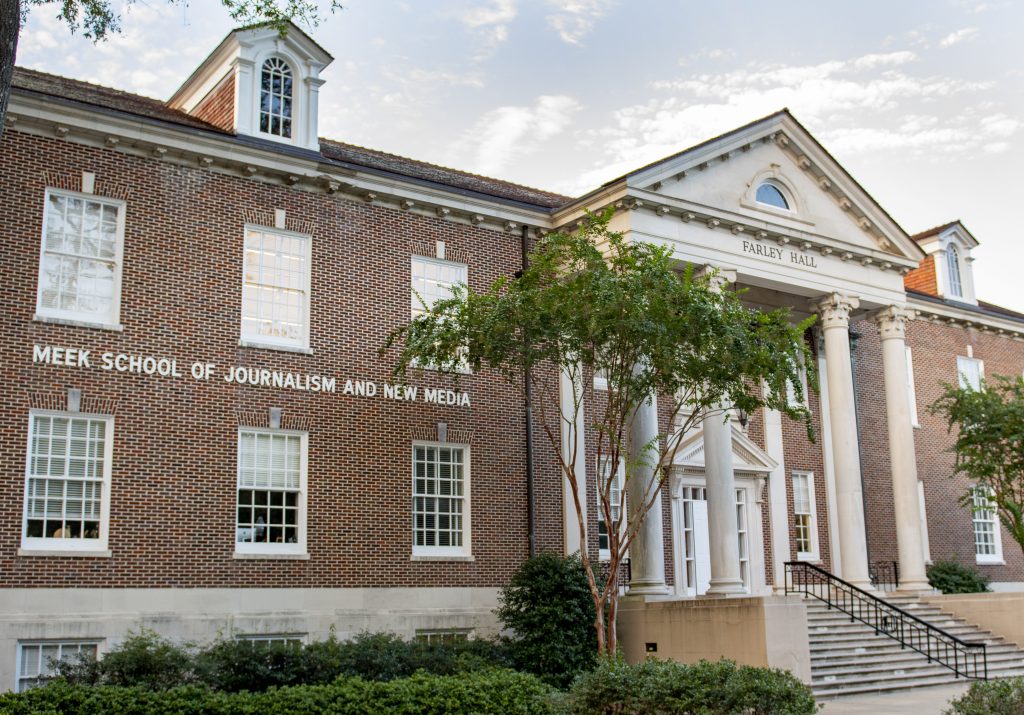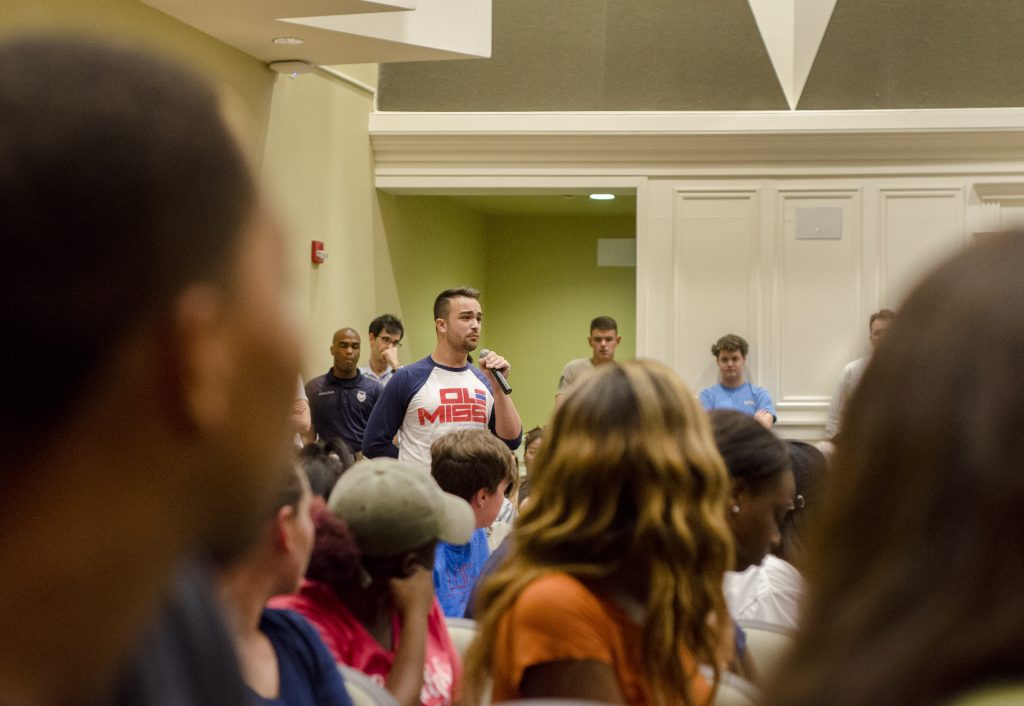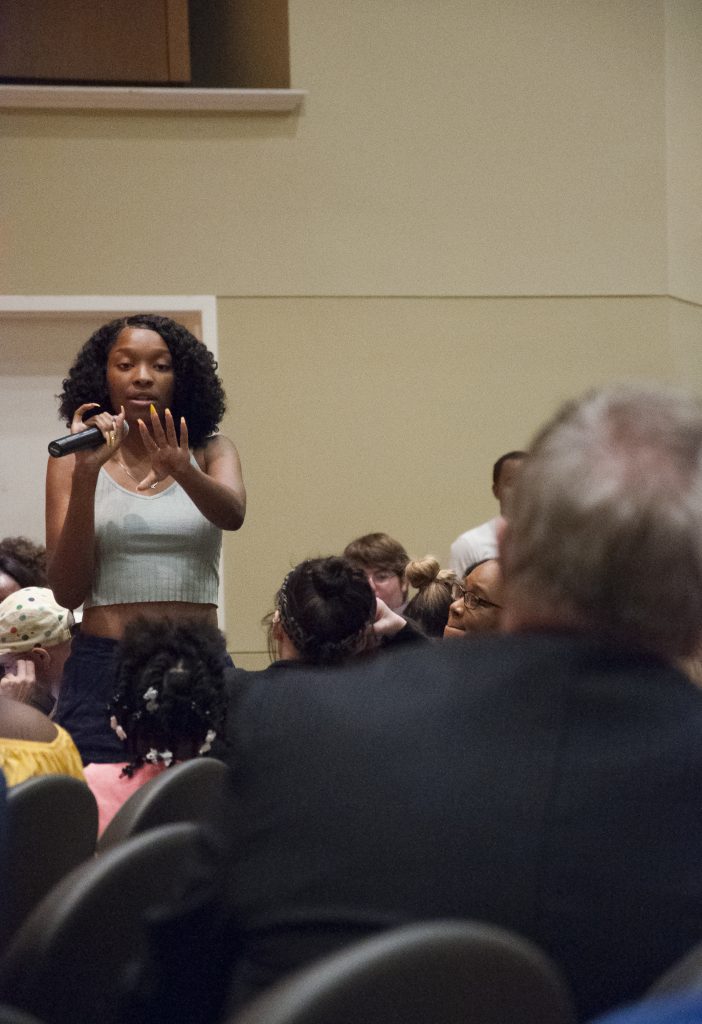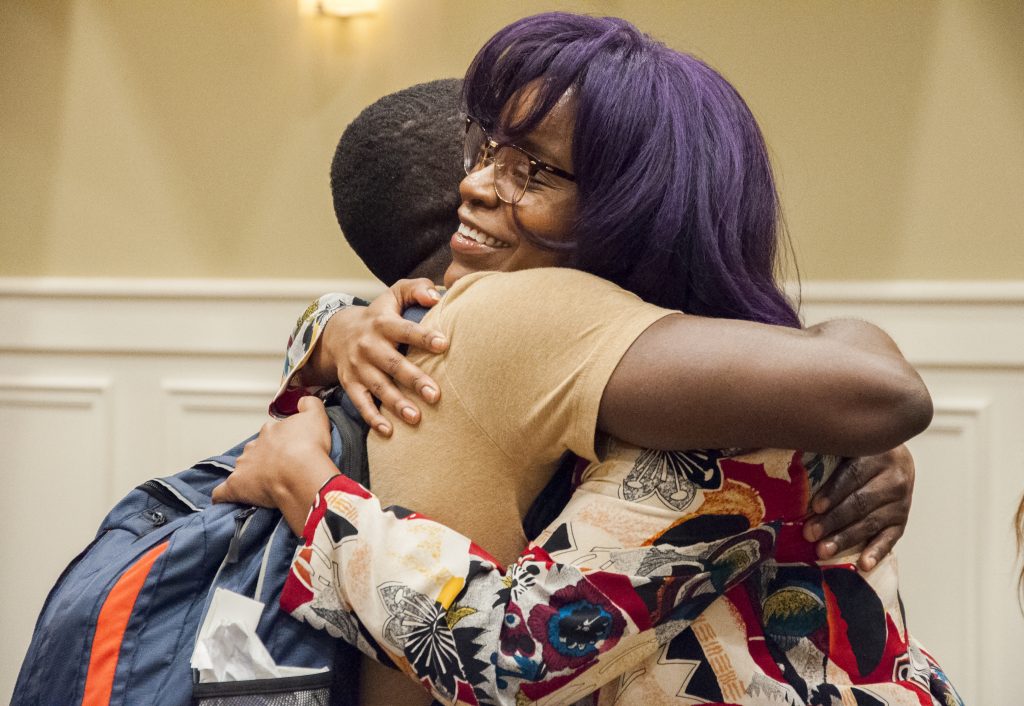Before the dust even began to settle around Ed Meek’s offensive Facebook post, the university had taken a public stance and the student body had made its opinion clear. Within a few hours of Meek’s post, Chancellor Jeffrey Vitter condemned its racial tone and a student’s petition had garnered more than 600 signatures calling to remove Meek’s name from the journalism school. A little more than 24 hours later, journalism faculty had condemned Meek’s sentiments on camera and two listening sessions had further cemented students’ demands for university action.
Since Meek pressed ‘send’ on Sept. 19, the familiar conversation about addressing racism on campus has been different. The vitriolic back-and-forth that typically follows racially-charged rhetoric has been subdued. And while some who know Meek have vouched for his character, denouncement of his Facebook post has been nearly unanimous.

Ed Meek, the namesake of the Meek School of Journalism and New Media, has requested his name be removed from the school, following controversy around a now-deleted post on his Facebook page. Photo by Christian Johnson
Social media posts, petitions and listening sessions show a student body that appears to have already come together regarding its outlook and demands of campus leaders. At the Nutt Auditorium forums, students applauded those who spoke up, embraced classmates in moments of fear and listened to one another.
This time, the university acted swiftly and students responded accordingly. Conversations surrounding Meek’s post weren’t focused on sifting through the immediate debris; rather, conversation was about steps going forward. The removal of his name from the School of Journalism and New Media seemed imminent.
Now that the university has upheld its immediate responsibility to act upon its students’ needs and Vitter has formally submitted the name change proposal to the state Institutions of Higher Learning, many within the Ole Miss community are wondering just what this campus’ best path forward is.
What’s the cause?
Attempts at uncovering the root causes and motivations for racist actions at Ole Miss have proven unsuccessful, as demonstrated by the recurrence of these issues on campus.
Elly Quinton, a senior integrated marketing communications major who spoke at both open forums, said she believes race-related issues flourish on campus because of the university’s inhibition in the handling of these problems in the past.
“Every time something happens the university is like ‘We’re not going to condone this, we don’t agree with this,’ but they haven’t actually done anything,” Quinton said. “It’s not just about (Meek) and what he said, it’s about things that have been going on on our campus for years. I think a lot of people want to see something done.”

The Meek School of Journalism and New Media holds a town hall to allow the university community to voice their opinions regarding Ed Meek’s Facebook post. Photo by Alexis T. Rhoden
“Microaggressions at the University of Mississippi,” a report published on Wednesday by the UM Race Diary Project, provides research documenting “racial and other microaggressions at the University of Mississippi based on 1,383 student diary entries submitted online,” according to the paper’s introduction.
“During the 2014-2015 academic year, 621 undergraduate students reported 1,381 incidents of microaggressions involving microassaults (explicit putdowns), microinsults (unconscious rudeness and insensitivity), and microinvalidations (unconscious negation or nullification),” the report’s summary reads.
The study’s findings show, through a scientific process, that Ole Miss needs to do more to protect its students from discrimination and hate on campus.
Click here to read the full UM Race Diary Project report.
“Microaggressions by students and some faculty and staff persist despite the University’s efforts to encourage tolerance,” the study claims.
Senior leaders of the university reviewed the study as its findings became public and released a statement categorizing the incidents reported as “insensitive to intolerant to offensive.”
“We are disturbed by the prospect that these incidents occurred here, and the findings of this report make our leadership team even more determined and committed to foster a more inclusive campus environment,” the leadership’s statement reads.
University leaders acknowledged that UM has made “substantial, sustained, and measurable progress” on campus, but that “much work remains to be done.”
“We recognize that our university’s unique history regarding race puts us in the spotlight more often than most, and calls us to provide leadership on issues of race and inclusiveness,” the statement reads.
Seyna Clark, a sophomore journalism major who spoke at both listening sessions, said she believes the university’s actions toward addressing these historical problems have been hollow.

Sophomore Seyna Clark directly addresses Chancellor Vitter during the open forum at Nutt Auditorium. Photo by Devna Bose
“I kind of felt like the university was pretending to be proactive,” Clark said.
Carl Tart, a senior exercise science major, echoed Clark’s critiques.
“I really think they’re trying to make this an issue where it dies off,” Tart said. “To me, it just cannot die off, because the moment that it dies off is the moment that something will happen again.”
Tart, a former IMC major, spoke at the listening session about a personal exchange between he and Meek. After an online altercation with Ed Meek in August of 2017 regarding Meek’s degrading comments about the Student Activities Association’s welcome concert featuring Wiz Khalifa, Tart decided that he had to switch majors.
“After that (Wiz Khalifa) incident, I just decided that I don’t want his name anywhere near my degree,” Tart said.
What’s next?
Students at the listening forums addressed other racially-ambiguous issues on campus, such as bringing down the Confederate monument and examining the school’s use of “Ole Miss” and “Rebels.”
UM faculty members have also expressed the need for the university to take steps beyond addressing the immediate hatred condoned by Meek’s post. In the days following Meek’s harmful actions, assistant professors of history Jessica Wilkerson and Garrett Felber circulated a petition calling upon school leaders to take a more direct look at the issues plaguing the campus.
“I think we haven’t done enough,” Wilkerson said. “We just really have started to acknowledge that historical racism and sexism that has deep roots here in Mississippi.”
That petition has garnered more than 100 signees representing UM students, faculty and staff.
“We must not simply condemn acts and symbols of hate on our campus but also build institutions which affirm our students and raise up historical struggles for justice,” the petition states.
The signees of the letter recommend that, in addition to removing Meek’s name, the University rename the journalism school after Ida B. Wells-Barnett, a pioneer in African-American investigative journalism whose birthplace in Holly Springs is a mere 33 miles from Oxford. Michelle Duster, the great-granddaughter of Wells-Barnett, has welcomed this move.
The petition also recommends that the university establish a scholarship for black women pursuing journalism degrees at the university. Lastly, it recommends that the university establish a committee for reparative justice led by students and faculty to begin the process of removing the Confederate monument.
In a statement released Tuesday, Chancellor Vitter cemented what many students saw as inevitable since Meek’s post was published. Vitter confirmed he has submitted a proposal to the IHL to remove Meek’s name from the school, requesting the IHL give the proposal “expedited consideration” at its October meeting.
Vitter’s submission to the IHL placates immediate concerns, but as students have made clear, the removal of Meek’s name is merely the first necessary step toward creating a non-discriminatory campus environment.
Provost Noel Wilkin said the Ole Miss community is not alone in its need to achieve reconciliation, and that each person on campus plays a role in reaching that goal.
“It is clear that despite the excellent programs, faculty, and students that we have on our campus, incivility still exists,” Wilkin said. “Helping people learn how to appreciate people of difference is part of the educational mission. While our campus is not unique in this, we embrace this educational responsibility and hope to continue to be a leader in reconciliation.”
Professor Michael Fagans, co-chair of the diversity committee for the School of Journalism, emphasized the need to view the Meek situation a “learning case, not a demonizing case, as well as making this a safe place for people to attend school.”
“I don’t know that we’re done yet,” Fagans said. “To me, it’s really hard to say that we’ve handled it as well as we could because it’s not over yet. We want to keep hearing from students.”
What if no change occurs?
Students have made clear their worries that university administration will soon move on to the next item on its agenda, without fully addressing the issues brought forward by Meek’s post.
Some worry the indignation felt in the aftermath of the post will burn heavy but fade fast.

Black Student Union President Jarvis Benson and senior Mahoghany Jordan embrace after she spoke out during the open forum at Nutt Auditorium. Jordan was one of the women targeted in Ed Meek’s controversial Facebook post. Photo by Devna Bose
In hope of preventing this trend, the UM Division of Diversity and Community Engagement has scheduled dialogues on diversity, the journalism school’s diversity committee will continue to seek out student input and leaders of the UM Race Diary Project have called on the school to educate its students on intolerance in everyday practice.
“Education is our mission, and human interactions improve with increased understanding,” Wilkin said. “Incidents of incivility are not the norm, and yet they can be incredibly harmful to people who are here in pursuit of knowledge, understanding, and abilities.”
In the UM Race Diary Project report, researchers conclude that “in the absence of vigorous educational programs and rigorously enforced prosocial policies by the university, microaggressions will undoubtedly continue as arriving students find support for these ideas amongst their peers, within Greek houses, in classrooms, and in other public or private spaces on- or off-campus where archaic notions about ‘other’ groups thrive.”
“Our reticence to identify microaggressions and correct those who perpetrate them abdicates our role of educating offenders and helping them develop into mature, thoughtful adults,” the report states.
The university now sits at a pivotal juncture in its history. While a few keystrokes flowing from the hands of one 77-year-old Ole Miss alumnus may seem insignificant compared to race riots outside of the Lyceum or nooses placed around the James Meredith statue, the lasting effects within the community are not. Steps taken by the university in the coming months will set its trajectory, and whether or not lasting action ensues is left to be seen.






